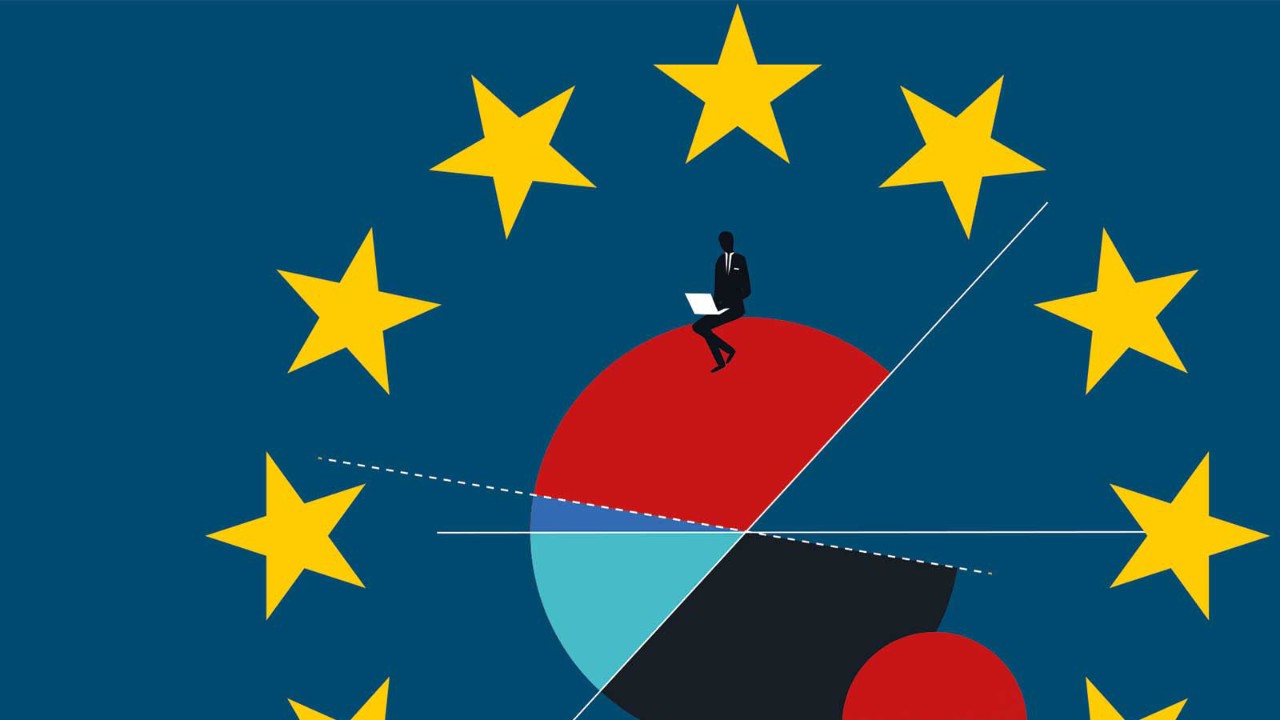
It was not so long ago that the European Union was congratulating itself on introducing the most grounding-breaking sustainability reporting standards the corporate world had ever seen.
But after lobbying from business leaders and politicians, a major review of European competitiveness from former European Central Bank president Mario Draghi, and a dramatic redrawing of the geopolitical landscape, those reporting standards are undergoing a major makeover.
The ‘Omnibus’ process to review and revise a number of key directives on sustainability reporting and sustainability due diligence, among others, is designed to simplify the legislation. But there is also no doubt that the changes, currently some way from completion, are intended to make the directives less onerous and compliance much cheaper.
Antonis Diolas, head of audit and assurance at ACCA, says the ‘intent’ of the broad Omnibus process is worthy. ‘Now the devil is in the detail,’ he adds.
The EU’s competitive compass framework aims to streamline regulatory demands
Launched at the end of February, the Omnibus is designed to address four major pieces of legislation: the Corporate Sustainability Reporting Directive (CSRD), the Corporate Sustainability Due Diligence Directive (CSDDD), the EU Taxonomy Regulation, and the Carbon Border Adjustment Mechanism (CBAM).
All four had major overlaps and had come to be seen as a problem. As Draghi put it in his analysis: ‘The EU’s sustainability reporting and due diligence framework is a major source of regulatory burden.’
Addressing the challenge has become part of the EU’s competitiveness compass framework to streamline regulatory demands and reduce the costs of compliance.
What’s changing?
The headline Omnibus proposals will remove 80% of companies from the scope of the CSRD, ensure large companies implementing the new rules ‘do not burden’ smaller businesses in their supply chain, and postpone application of the CSRD until 2028 for in-scope companies.
On the CSDDD, there will also be a postponement until 2028. The scope, once again, will be restricted to the largest companies and they will now review only their direct suppliers (not further down value chains). Additionally, there will be a limit on the information that can be demanded from SME suppliers.
On CBAM, there will be exemption for SMEs, while the taxonomy will have a new materiality threshold for reporting, with the aim of reducing reporting templates by around 70%.
There is, however, some way to go before all the detail is settled, with Jill Shaw, ESG and sustainability lead at law firm A&L Goodbody, emphasising that, ‘as a general comment, Irish companies should make sure they are keeping up to date with the developments proposed in the Omnibus package on sustainability’.
The Omnibus focuses on proportionality, simplification and clarity
It must be noted that not everyone is impressed with the current proposals. Aideen O’Dochartaigh, professor in accounting at Dublin City University Business School, describes the Omnibus as a ‘massive step backwards’ that could hamper business efforts to tackle the climate crisis and biodiversity loss.
Nonetheless, the Omnibus process is underway and at the end of March the EU parliament voted through a ‘stop-the-clock’ measure imposing a two-year delay on implementation of the CSRD and CSDDD.
Voluntary reporting
In common with many others, ACCA believes that continuing with voluntary reporting is the best option for companies that eventually face mandatory CSRD and CSDDD reporting. That, at least, tackles any uncertainty that might be triggered in stakeholders and shareholders as a result of the EU’s changing agenda. There are other benefits too, as O’Dochartaigh points out: ‘First-mover advantage is not eroded for any company that has started reporting on this.’
One group that should be pleased, perhaps even ‘relieved’, with the Omnibus are SMEs. Much of the Omnibus is designed to take SMEs out of scope of the CSRD and CSDDD – a sensitive issue for many European politicians.
According to Salvador Marín, chair of the European Federation of Accountants and Auditors for SMEs (EFAA for SMEs), the Omnibus is welcome for its focus on proportionality, simplification and clarity.
The good news among the Omnibus proposals is the adoption of SME reporting standards ‘based on’ the Voluntary Sustainability Reporting Standard for Non-Listed SMEs (VSME). What the EFAA for SMEs seeks, however, is formal legal recognition of VSME so that it functions as a cap on the information that large companies can demand from their SME suppliers.
Marín believes formal recognition of VSME will not only protect SMEs but also support the role of their advisers – small and medium accounting practitioners – in the developing culture of European sustainability reporting.
It remains unclear, however, how much of VSME will be embraced. The Omnibus simply says the European Commission will ‘issue a recommendation’ for voluntary SME reporting ‘based on the VSME standard’. As a result , Marín says the Omnibus ‘is a work in progress, but we must stay vigilant’.
One extreme to another
The changes to the scope of the legislation raise other questions. While there were complaints from across the EU that the CSRD would overburden smaller companies, its new focus on only the largest companies (those with 1,000 employees and €500m turnover) has prompted concern that the rules have swung to the other extreme.
Sharon Machado, head of sustainable business at ACCA, says: ‘We are very cautious about whether it should be at that high end.’
Changes to proposals for assurance have raised concerns
The postponements to 2028 are another concern. Some of the largest companies were due to report next year and are either deep in preparation or have started reporting early, perhaps even with some degree of assurance for their disclosures.
O’Dochartaigh worries about the delay too, ‘because we don’t have time when it comes to something like biodiversity loss and climate change’.
‘Reasonable’ assurance
Another bone of contention is proposals for assurance. The EU had planned to introduce ‘limited’ assurance for CSRD reporting based on an EU sustainability assurance standard due to be adopted next year and, following consultation, moving to ‘reasonable’ assurance in 2028.
However, the Omnibus suggests that, instead of a standard in 2026, auditors will be presented with ‘guidelines’, and a move to reasonable assurance has been dropped.
O’Dochartaigh says this is a ‘watering down’ of the original intention and could leave companies with assurance on their sustainability reports that is weaker than the assurance on their financials. ‘What assurance does,’ she says, ‘is give confidence in the figures, in the data, and it helps with comparability.’
Postponement offers companies extra time to explore and fine-tune data
Diolas recommends waiting for the reporting expectations to bed down before thinking of a move to reasonable assurance. This is particularly important given the EU has ordered a review of the new European Sustainability Reporting Standards (ESRS) with a view to substantially reducing the number of data points to be included in reports.
‘While we are not objecting to delaying a move to reasonable assurance, we do react to removing it completely without any consultation at a future date,’ Diolas adds.
Fine-tuning opportunity
The EU’s reconfigured goals and priorities means the Omnibus process will continue. Undeniably, the disappointment in some quarters is palpable, but there is also an opportunity here.
The current moment is a chance for companies to use the extra time made available by the postponement to explore and fine-tune their data gathering ready for going live with sustainability.
The CSRD will remain an extensive piece of legislation, though now affecting far fewer companies. EU officials are, however, still finalising the text of the new directive. That could take some months and, until it appears, the details will remain uncertain.
More information
Check out the resources at ACCA’s sustainability reporting hub: creating and using decision-useful information
Read about sustainability assurance and ESG standards
Find out about ethical dilemmas in an era of sustainability reporting



